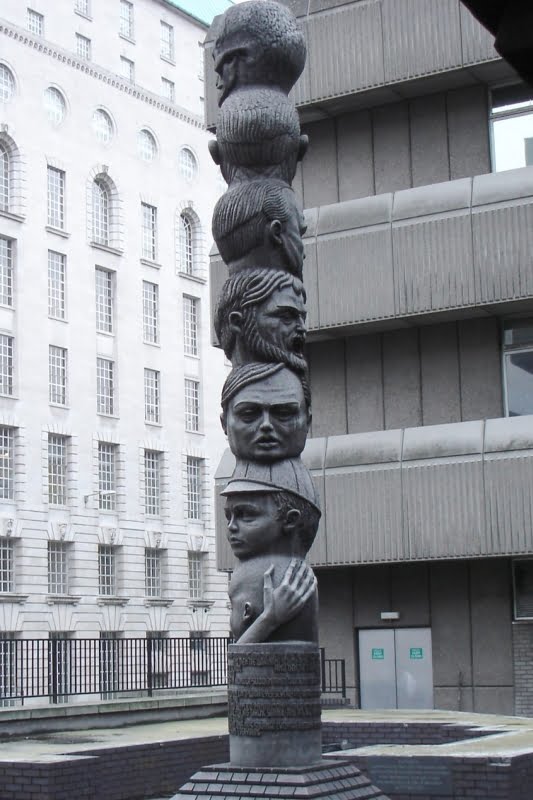William Shakespeare’s timeless eloquence in describing the human experience is perhaps nowhere more beautifully illustrated than in the “Seven Ages of Man” speech from his play Act II, Scene VII of As You Like It. This article delves into the rich tapestry of life stages that Shakespeare describes, reflecting on their relevance in today’s world.
Act II, Scene VII of As You Like It
“All the world’s a stage,
And all the men and women merely Players;
They have their exits and their entrances,
And one man in his time plays many parts,
His Acts being seven ages. At first, the infant,
Mewling and puking in the nurse’s arms.
Then the whining schoolboy, with his satchel
And shining morning face, creeping like snail
Unwillingly to school. And then the lover,
Sighing like furnace, with a woeful ballad
Made to his mistress’ eyebrow. Then a soldier,
Full of strange oaths and bearded like the pard,
Jealous in honor, sudden and quick in quarrel,
Seeking the bubble reputation
Even in the cannon’s mouth. And then the justice,
In fair round belly with good capon lined,
With eyes severe and beard of formal cut,
Full of wise saws and modern instances;
And so he plays his part. The sixth age shifts
Into the lean and slippered pantaloon,
With spectacles on nose and pouch on side;
His youthful hose, well saved, a world too wide
For his shrunk shank, and his big manly voice,
Turning again toward childish treble, pipes
And whistles in his sound. Last scene of all,
That ends this strange eventful history,
Is second childishness and mere oblivion,
Sans teeth, sans eyes, sans taste, sans everything.”
– William Shakespeare
- The Infant
Shakespeare begins with the infant, “mewling and puking in the nurse’s arms.” This stage symbolises helplessness and the beginning of life’s journey, dependent entirely on others, reminding us of the purity and innocence that characterises our early years. - The Whining Schoolboy
Next, we encounter the reluctant schoolboy, a universal figure, dragging his feet to school. This age represents the educational journey and the reluctant shift from the freedom of infancy to the disciplines of education—a critical formative phase in personal development. - The Lover
The lover, sighing dramatically for his beloved, illustrates the intense emotions and idealism of young adulthood. Shakespeare poignantly captures the bittersweet essence of youthful passion, which is often more about fantasy than reality. - The Soldier
Emerging into adulthood, the soldier is depicted as bold and reckless, “full of strange oaths and bearded like the pard.” This stage reflects the adventurous spirit, often marked by a quest for honour and glory, albeit sometimes misguided. - The Justice
The middle-aged ‘justice’, with his “fair round belly” and wisdom, represents the age of responsibility, leadership, and societal contribution. It signifies a period of stability and reflection—possibly the pinnacle of one’s career and personal life. - The Pantaloon
In the declining years, the ‘pantaloon’ with his spectacles and “youthful hose, well saved,” symbolises the onset of old age, characterised by a gradual return to dependency and a reminiscence of the vigour of youth. - Second Childishness
Finally, the cycle concludes with “second childishness and mere oblivion,” a poignant reminder of the inevitable return to dependency and simplicity, stripping away the complexities accumulated over a lifetime.

In “As You Like It,” Shakespeare not only entertains but also philosophises about the stages of human life, using the theatre as a metaphor for human existence. Each stage, with its unique challenges and beauty, underscores the transient nature of life, encouraging a reflective understanding of our own passage through these ages. The wisdom of the Bard continues to resonate with modern audiences, reminding us that life, in all its complexity and simplicity, is a grand play in which we are simultaneously actors and spectators. Through this exploration, Shakespeare invites us to consider not only the roles we play but also the values and legacies we leave behind in each phase of our lives. As we move from one stage to the next, his timeless words serve as a poignant reminder of our shared human journey, highlighting the universality of growth, struggle, and eventual serenity.
Further Reading